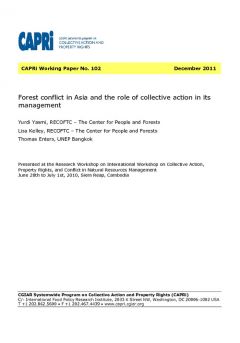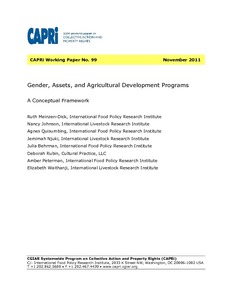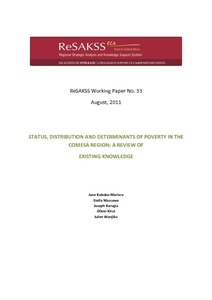Focal point
Location
About IFPRI
The International Food Policy Research Institute (IFPRI) provides research-based policy solutions to sustainably reduce poverty and end hunger and malnutrition in developing countries. Established in 1975, IFPRI currently has more than 500 employees working in over 50 countries. It is a research center of theCGIAR Consortium, a worldwide partnership engaged in agricultural research for development.
Vision and Mission
IFPRI’s vision is a world free of hunger and malnutrition. Its mission is to provide research-based policy solutions that sustainably reduce poverty and end hunger and malnutrition.
What We Do
Research at IFPRI focuses on six strategic areas:
- Ensuring Sustainable Food Production: IFPRI’s research analyzes options for policies, institutions, innovations, and technologies that can advance sustainable food production in a context of resource scarcity, threats to biodiversity, and climate change. READ MORE
- Promoting Healthy Food Systems: IFPRI examines how to improve diet quality and nutrition for the poor, focusing particularly on women and children, and works to create synergies among the three vital components of the food system: agriculture, health, and nutrition. READ MORE
- Improving Markets and Trade: IFPRI’s research focuses on strengthening markets and correcting market failures to enhance the benefits from market participation for small-scale farmers. READ MORE
- Transforming Agriculture: The aim of IFPRI’s research in this area is to improve development strategies to ensure broad-based rural growth and to accelerate the transformation from low-income, rural, agriculture-based economies to high-income, more urbanized, and industrial service-based ones. READ MORE
- Building Resilience: IFPRI’s research explores the causes and impacts of environmental, political, and economic shocks that can affect food security, nutrition, health, and well-being and evaluates interventions designed to enhance resilience at various levels. READ MORE
- Strengthening Institutions and Governance: IFPRI’s research on institutions centers on collective action in management of natural resources and farmer organizations. Its governance-focused research examines the political economy of agricultural policymaking, the degree of state capacity and political will required for achieving economic transformation, and the impacts of different governance arrangements.
Research on gender cuts across all six areas, because understanding the relationships between women and men can illuminate the pathway to sustainable and inclusive economic development.
IFPRI also leads two CGIAR Research Programs (CRPs): Policies, Institutions, and Markets (PIM) andAgriculture for Nutrition and Health (A4NH).
Beyond research, IFPRI’s work includes partnerships, communications, and capacity strengthening. The Institute collaborates with development implementers, public institutions, the private sector, farmers’ organizations, and other partners around the world.
Resources
Displaying 631 - 635 of 1521Responding to land degradation in the highlands of Tigray, Northern Ethiopia
Improving the long-term sustainability and resilience of smallholder agriculture in Africa is highly dependent on conserving or improving the quality of the natural resource. Conservation agriculture is conceived around more integrated and effective management strategies for provisioning both food and other ecosystem services. If unattended to, land degradation would reduce agricultural productivity and increase pressure on marginal environments in the Tigray highlands of Ethiopia, adversely affecting food security and livelihoods of smallholder farmers.
Forest Conflict in Asia and the Role of Collective Action in its Management
Forest conflict in Asia is on the rise as various stakeholders have different views about and interests in the management of increasingly scarce resources. Unfortunately, in many instances, local communities and indigenous peoples suffer the most when such conflicts play out. Focusing on how rights (or a lack thereof) instigate conflict and how collective action plays a role in conflict management, this paper examines eight cases from six countries: Cambodia, China, Indonesia, Lao PDR, Thailand and Vietnam.
Who Owns the Land? Perspectives from Rural Ugandans and Implications for Land Acquisitions
Includes key concepts for understanding land rights; land tenure and women’s property rights in Uganda; land acquisition in Uganda; who owns the land? Perspectives from the local level. Analyses how different ways of defining landownership provide very different indications of the gendered patterns of landownership and rights. Although many households report that husbands and wives jointly own the land, women are less likely to be listed on ownership documents, especially titles, and women have fewer land rights.
Gender, Assets, and Agricultural Development Programs: A Conceptual Framework
Being able to access, control, and own productive assets such as land, labor, finance, and social capital enables people to create stable and productive lives. Yet relatively little is known about how agricultural development programs can most effectively deliver these outcomes of well-being, empowerment, and higher income in a way that acknowledges differential access to and control over assets by men and women.
Status, distribution and determinants of poverty in the COMESA region: A review of existing knowledge
Poverty and vulnerability are among the major problems in Eastern and Southern Africa (ESA). To design appropriate poverty reduction initiatives for the region, it is not only important to understand the distribution of poverty but also the determinants. Various reports have documented information on the status, distribution and determinants of poverty in each of the countries.







